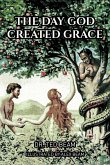Book Blurb The book begins by debunking the popular idea that Man is just another type of ape by an explanation of human nature as deeply cooperative as well as competitive, and showing that consciousness and free will are not illusions but defining features of humanity. The materialist atheism favoured by evolutionary biologists and their Humanist admirers is an impossible basis for any system of ethics, and Humanist liberal principles are in fact rooted in Judaeo-Christian culture. Some of our moral ideas like justice and law come from our experience of living together, not because God has commanded them, and religion itself has evolved as people have had to grapple with the problems of complex societies, wealth and power, and luxury and self-indulgence. Rather than the traditional religious image of morality as simply the commandments of a deity, it is far more fruitful to ask how adding the spiritual dimension of existence to the material dimension changes the sort of ethical system we can have. A divine reality transcending particular societies can on the one hand justify respect for law and order, but at the same time balance this with a profound reverence for each individual life. Without this divine basis for the moral order there is an inevitable tendency to develop either an extreme individualism or an equally extreme worship of the state. Author Biography Christopher Hallpike is Emeritus Professor of Anthropology at McMaster University, Canada, an Oxford D.Litt, and sometime Bye Fellow of Robinson College, Cambridge. He spent ten years of his early career living with mountain tribes in Ethiopia and Papua New Guinea, learning their languages, and writing books about them. His long experience of these societies has also been the basis of a number of books on social and cultural evolution, notably The Foundations of Primitive Thought, The Principles of Social Evolution, Ethical Thought in Increasingly Complex Societies, and How We Got Here. Central to Hallpike's idea of anthropology is the concept of primitive society as small-scale, face-to-face communities without writing, money or the state because they have been typical of human experience for thousands of years. He has waged ceaseless warfare against politically correct revisionists who have tried to pretend that there no such things.
Bitte wählen Sie Ihr Anliegen aus.
Rechnungen
Retourenschein anfordern
Bestellstatus
Storno








